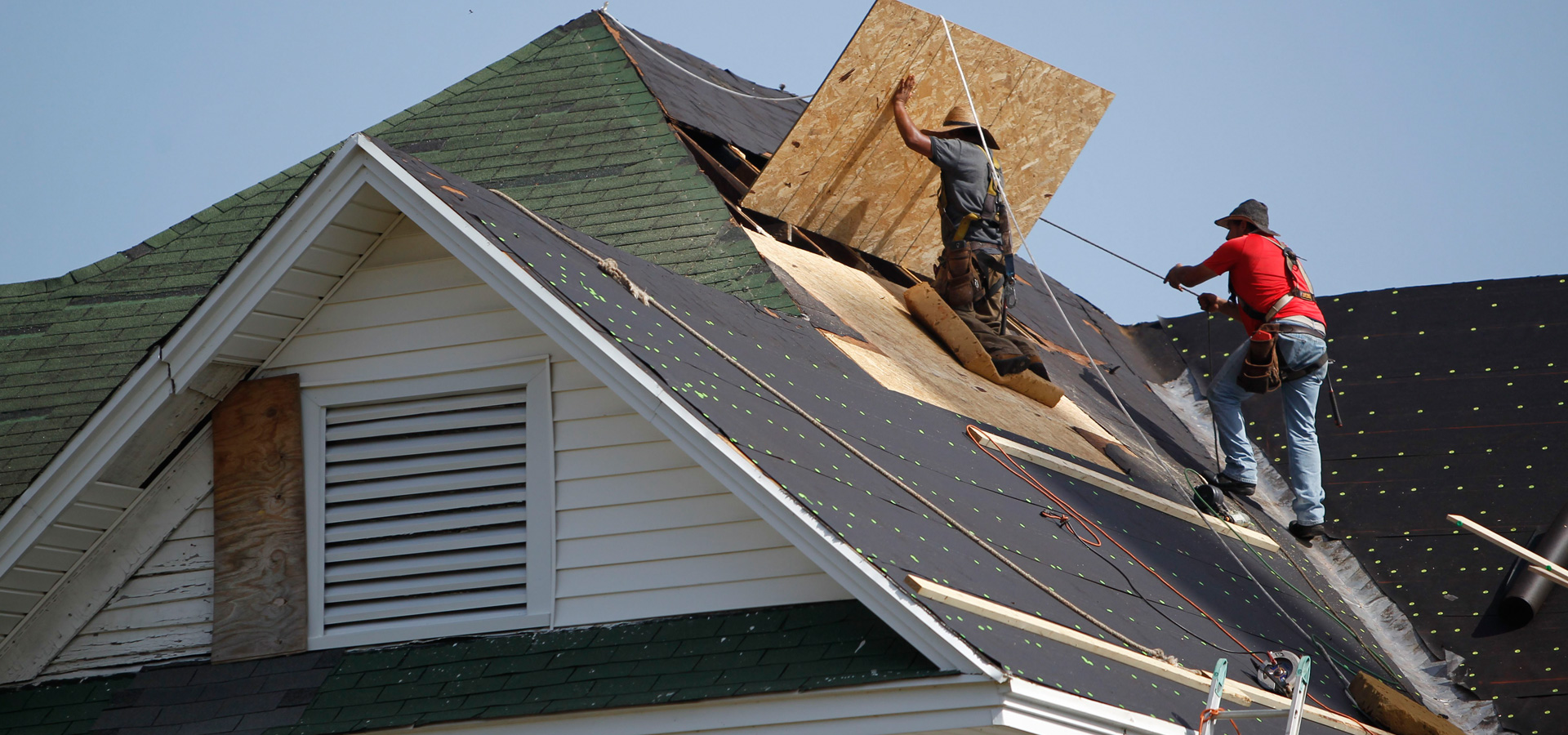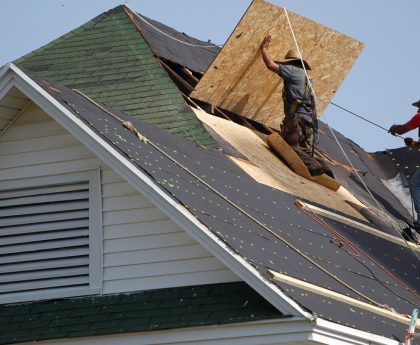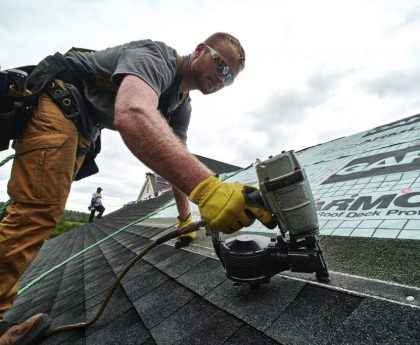Residential roofing refers to the installation, repair, maintenance, and replacement of roofs on homes, townhouses, and other residential buildings. A properly maintained roof is crucial for protecting a home from the elements and ensuring the safety and comfort of its occupants. Here are key aspects of residential roofing:
1. Roof Inspection:
- Roofing professionals begin with a thorough inspection of the existing roof to assess its condition. They look for signs of damage, wear and tear, leaks, and structural issues.
2. Roof Repair:
- If the inspection reveals minor damage or issues, roofing contractors can perform repairs. This may include patching leaks, replacing damaged shingles or tiles, repairing flashing, or fixing gutter problems.
3. Roof Maintenance:
- Regular roof maintenance helps extend the life of your roof. This may involve cleaning debris, removing moss or algae growth, and inspecting for minor issues that can be addressed before they become major problems.
4. Roof Replacement:
- When a roof reaches the end of its lifespan or experiences extensive damage that cannot be effectively repaired, it may need to be replaced. Roof replacement involves removing the existing roofing material and installing new roofing materials.
5. Roofing Materials:
- Homeowners can choose from various roofing materials, including asphalt shingles, metal roofing, wood shakes, slate, clay tiles, and more. The choice of material depends on factors like climate, budget, and aesthetics.
6. Roof Installation:
- Roof installation is a complex process that involves the installation of underlayment, roofing material, flashing, vents, and proper ventilation. It should be done by experienced professionals to ensure the roof’s integrity.
7. Roof Ventilation:
- Proper roof ventilation is essential for regulating temperature and humidity in the attic and preventing issues like ice dams and mold growth. Residential roofing professionals ensure adequate ventilation during installation or repair.
8. Skylights and Roof Features:
- Roofing services may also include the installation, repair, or replacement of skylights, chimneys, vents, and other roof features.
9. Energy Efficiency:
- Roofing professionals may offer energy-efficient roofing options to help homeowners save on energy costs and reduce their environmental impact. This includes reflective or cool roofing materials.
10. Roofing Warranties: – Many roofing materials come with warranties from the manufacturer. Roofing contractors should provide warranties for their workmanship as well.
11. Roof Insulation: – Roofing professionals may assess and improve roof insulation to enhance energy efficiency and comfort inside the home.
12. Safety Measures: – Roofing contractors prioritize safety during all roofing projects, utilizing proper equipment and safety measures to protect workers and property.
When seeking residential roofing services, it’s essential to hire a reputable and licensed roofing contractor with experience in the type of roofing material you have or plan to install. Properly maintaining and repairing your residential roof ensures its longevity and helps safeguard your home from water damage and other weather-related issues. Regular inspections and timely repairs are crucial for the overall health of your roof.




